
The Hepialidae are a family of insects in the lepidopteran order. Moths of this family are often referred to as swift moths or ghost moths.

Arthur Gardiner Butler F.L.S., F.Z.S. (1844–1925) was an English entomologist, arachnologist and ornithologist. He worked at the British Museum on the taxonomy of birds, insects, and spiders.
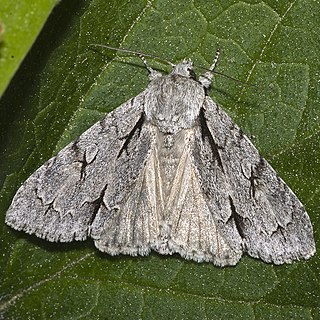
Acronicta is a genus of noctuid moths containing about 150 species distributed mainly in the temperate Holarctic, with some in adjacent subtropical regions. Caterpillars of most Acronicta species are unmistakable, with brightly colored hairy spikes, and often feed quite visibly on common foliate trees. The larva of the smeared dagger moth is unusually hairy even for this genus. Acronicta species are generally known as dagger moths, as most have one or more black dagger-shaped markings on their forewing uppersides. But some species have a conspicuous dark ring marking instead.

Agrotis is a genus of moths of the family Noctuidae. The genus was erected by Ferdinand Ochsenheimer in 1816. A number of the species of this genus are extinct.

The Thyrididae comprise the family of picture-winged leaf moths. They are the only family in the superfamily Thyridoidea, which sometimes has been included in the Pyraloidea, but this isn't supported by cladistic analysis.

Digama is a genus of moths in the family Erebidae described by Frederic Moore in 1858. It is distributed in South Africa, China, throughout India, Sri Lanka, Myanmar and Australia.
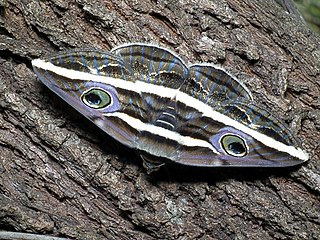
Donuca is a genus of moths of the family Noctuidae.

Asota is a genus of moths in the family Erebidae first described by Jacob Hübner in 1819. Species are widely distributed throughout Africa, India, Sri Lanka, Myanmar, the Malayan region and tropical parts of the Australian region.

Donuca castalia, the brown white banded noctuid, is a moth of the family Noctuidae. The species was first described by Johan Christian Fabricius in 1775. It is found in Queensland.

Donuca spectabilis, the white-spotted owl-moth, is a moth of the family Noctuidae. The species was first described by Francis Walker in 1865. It is found in most of mainland Australia.
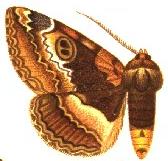
Donuca xanthopyga is a species of moth of the family Noctuidae first described by Turner in 1909. It is found in the Australian state of Queensland.
Donuca orbigera is a species of moth of the family Noctuidae first described by Achille Guenée in 1852. It is found in the northern half of Australia.
Donuca lanipes is a species of moth of the family Noctuidae first described by Arthur Gardiner Butler in 1877. It is found in the north-eastern quarter of Australia.

Ercheia dubia previously known as Catephia dubia is a species of moth of the family Erebidae. It is found in Asia and in Australia and New Guinea

Ctimene is a genus of moths in the family Geometridae.
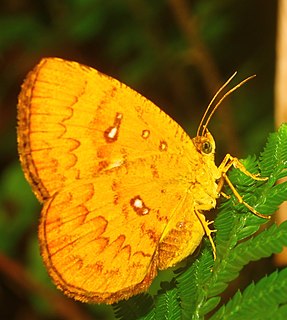
Callidula is a genus of moths of the family Callidulidae.
Anthela limonea is a moth of the Anthelidae family. It is found in Australia.
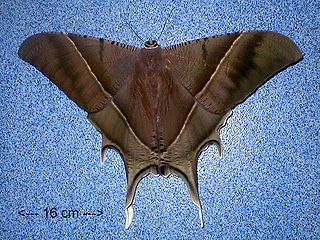
Lyssa is a genus of moths in the family Uraniidae. The genus was erected by Jacob Hübner in 1823.
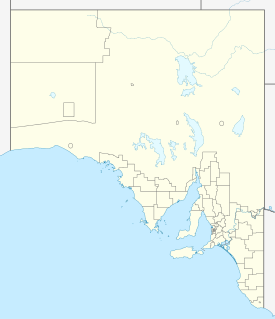
The District Council of Grace was a local government area in South Australia from 1874 to 1935, seated at Mallala.














